March 20, 2019 - It was once among the top brands in all former Yugoslavia, its fashion sought after internationally. Are good times coming back to Varteks in the 101st year of its history? TCN learns more about the digital revolution from Varteks CEO and member of the 2018 Financial Times top 100 digital champions, Nenad Bakic.
In my many years of living in the Soviet Union, Russia, Georgia and finally Croatia, the scenes have been depressingly all too familiar. The once great Socialist system, whose factories not only employed most of the locals, but defined a town or city, lay in ruins, its once-proud factories abandoned, as well as those once guaranteed jobs and all sense of hope. Ghost towns where once thriving communities existed, fed by the factory that defined most aspects of the regular way of life.
Having moved from Hvar to a village near Varazdin a couple of years ago, it did not take long for the shadow of former fashion giant Varteks to make itself known.
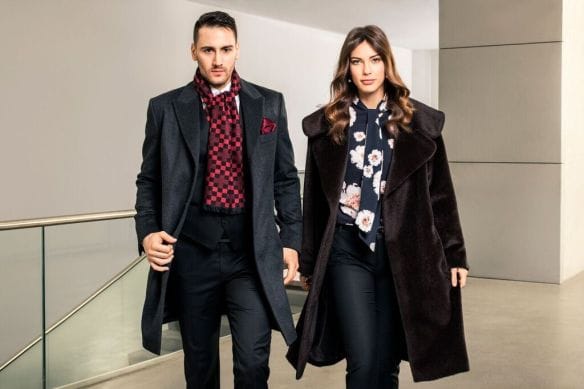
Varteks WAS Varazdin for the longest time. This gorgeous Baroque city (yes, I do really think it is the prettiest in all Croatia) and a former capital before Zagreb, was synonymous with the local textile factory, which at its height had no less than 187 prime pieces of real estate selling their high-quality wares all over former Yugoslavia. And abroad. Varteks suits did a brisk trade in Italy, UK, USA and Switzerland, to name but some Western markets where the company had an established presence.
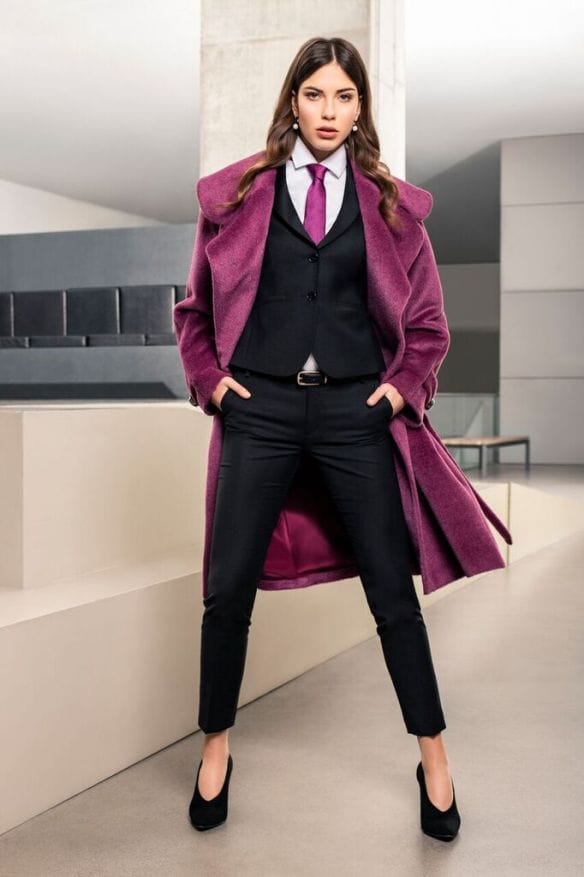
At its height, Varteks employed no less than 11,500 people, with production facilities all over Varazdin Country. Levi jeans were produced in Novi Marof, and there were other production facilities in Ludbreg and Ivanic, as well as the mother ship in Varazdin itself.
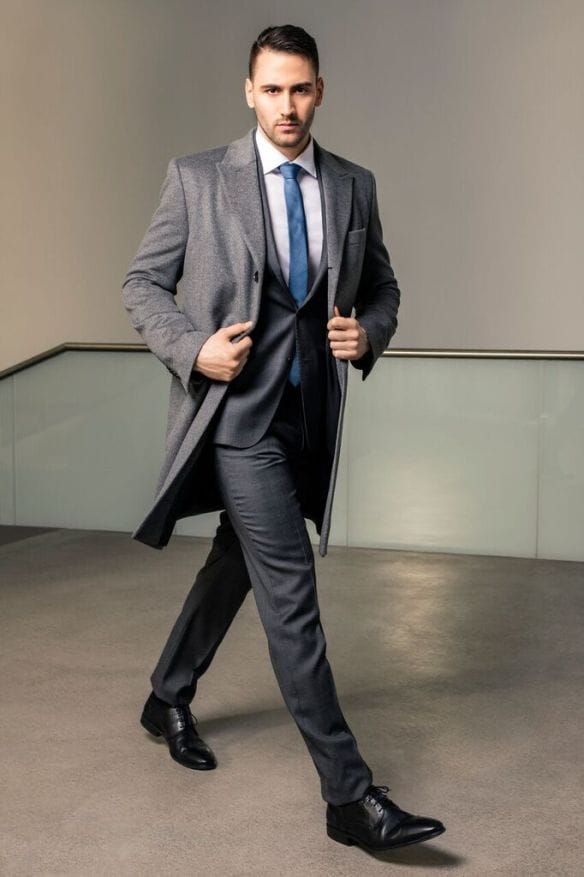
Croatian industry is all but non-existent these days, with the Homeland War putting paid to much of that, but in the case of Varteks, the company continued after the war, but it was soon a shadow of its former glory. While the quality of its product never wavered and it continued to sew for some of the world's top fashion brands, as well as producing its own lines of clothing, the workforce was literally decimated from 11,500 to 1,200, and crippling losses (800 million kuna - about 110 million euro) over ten years brought the once proud company to its knees.
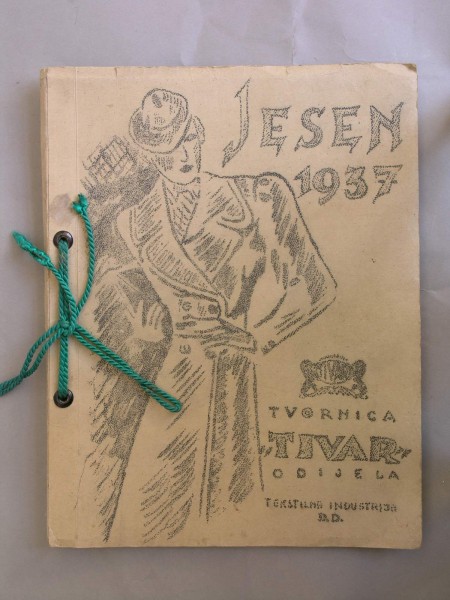
(The 1937 catalogue, when Varteks was trading under its previous name of Tivar)
One of Croatia's leading entrepreneurs, Nenad Bakic, took over the reins as CEO last year, the 100th year of the company's existence.
Bakic has a no-nonsense approach to life and a clear vision of how things should be done. It is one of the qualities he possesses that led The Financial Times to include him in the list of Top 100 Digital Champions of Europe in 2018.
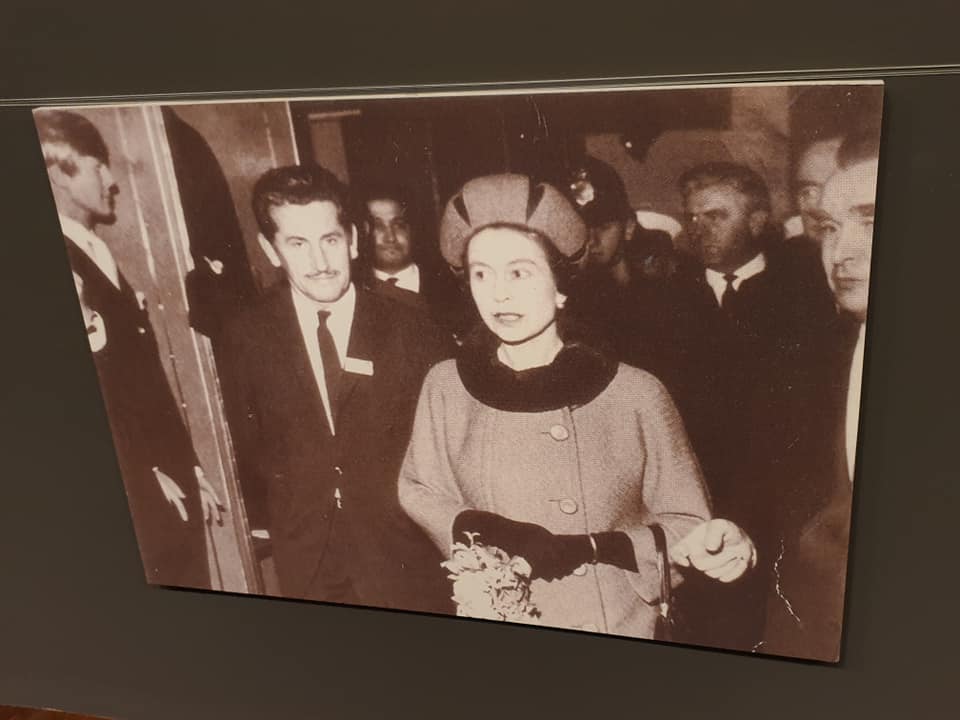
(Queen Elizabeth II at a Birmingham trade show with the then Vartkes CEO in 1967)
Bakic quickly grasped that Varteks had an incredible heritage and brand awareness in the region, but also desperately needed to modernise its marketing approach.
He took over the company as it celebrated its 100th year, and a really outstanding exhibition to mark the centenary is on display at the Varazdin City Museum until the end of this month. If you can't make it, check out the video tour above.
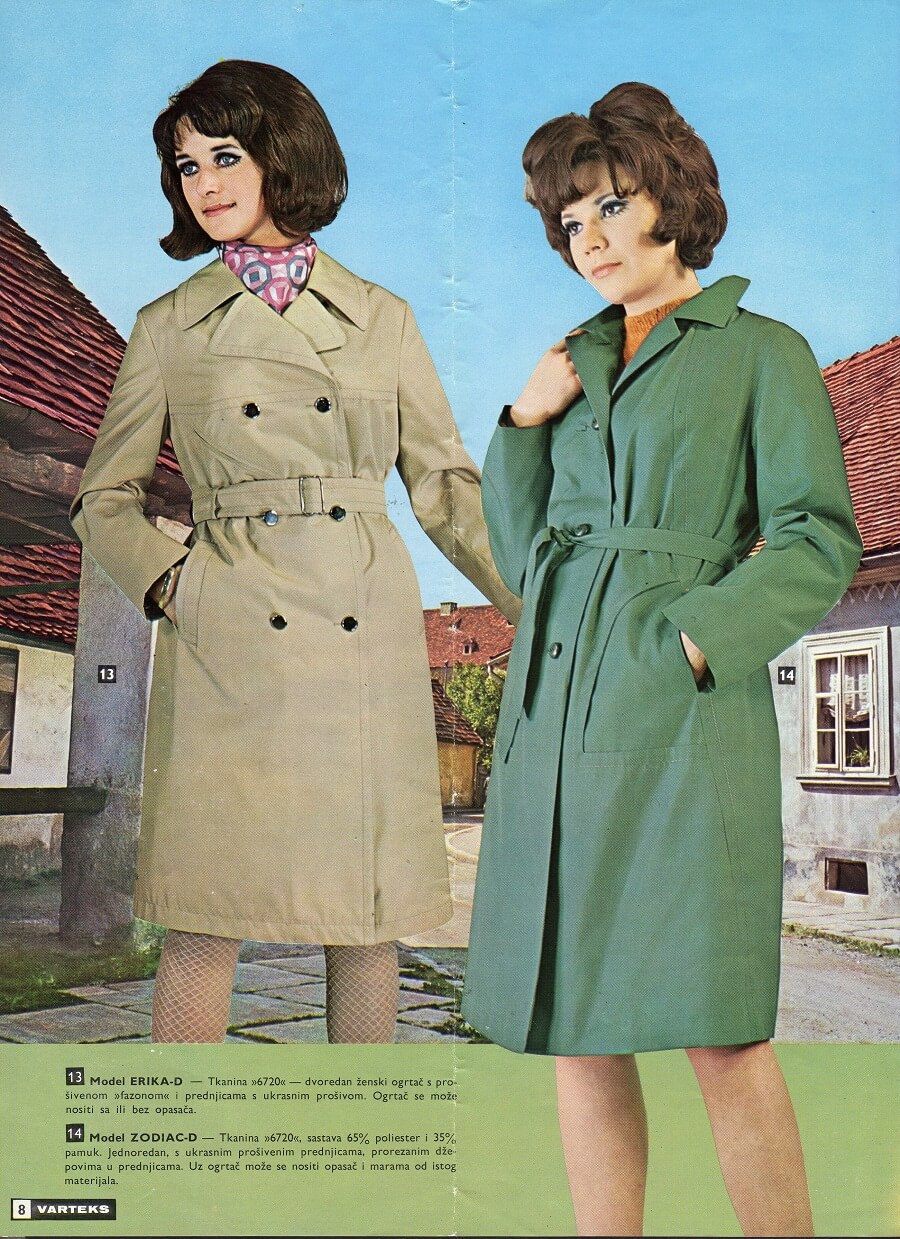
Varteks suits and commercial clothing have been at the cutting edge of fashion and technology throughout the company's existence.
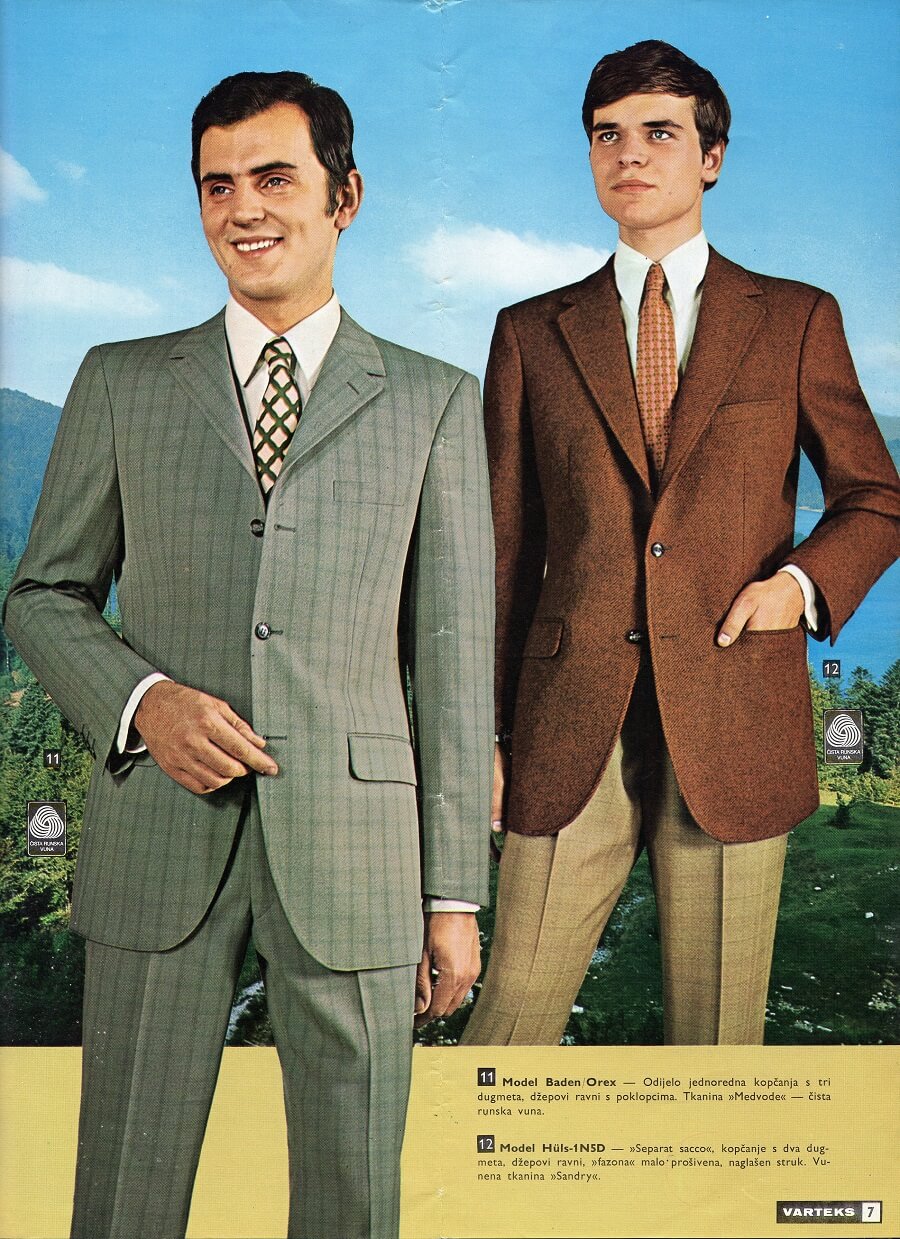
It ran a successful mail-order catalogue business, for example, some time before this 50-year-old correspondent was even born.
A quite delightful promo video from the Varteks archives above - seeing how the Varteks catalogue and clothes delivery service affected the lives of a normal family. The year is 1967.
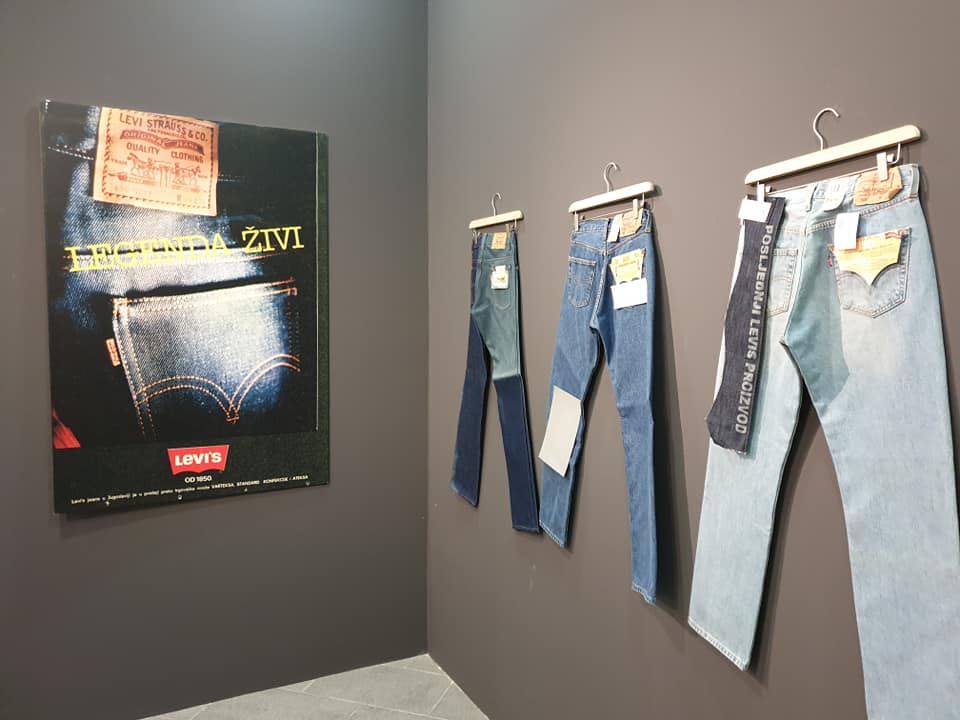
(From the 100 Years of Varteks exhibition - Levi Strauss, Varazdin-style)
But the all-too depressingly familiar story of industrial decay may not be the final chapter of the Varteks story. Nenad Bakic and his team have a clear vision of how to reestablish the Varteks brand, playing on its strengths of its proud history, branding and exceptional quality and adding innovative digital campaigns to complete refocus the Varteks brand and target market.
I caught up with Bakic in his Varteks office in Varazdin yesterday, where he was kind enough to spare time for an interview. In his own words:
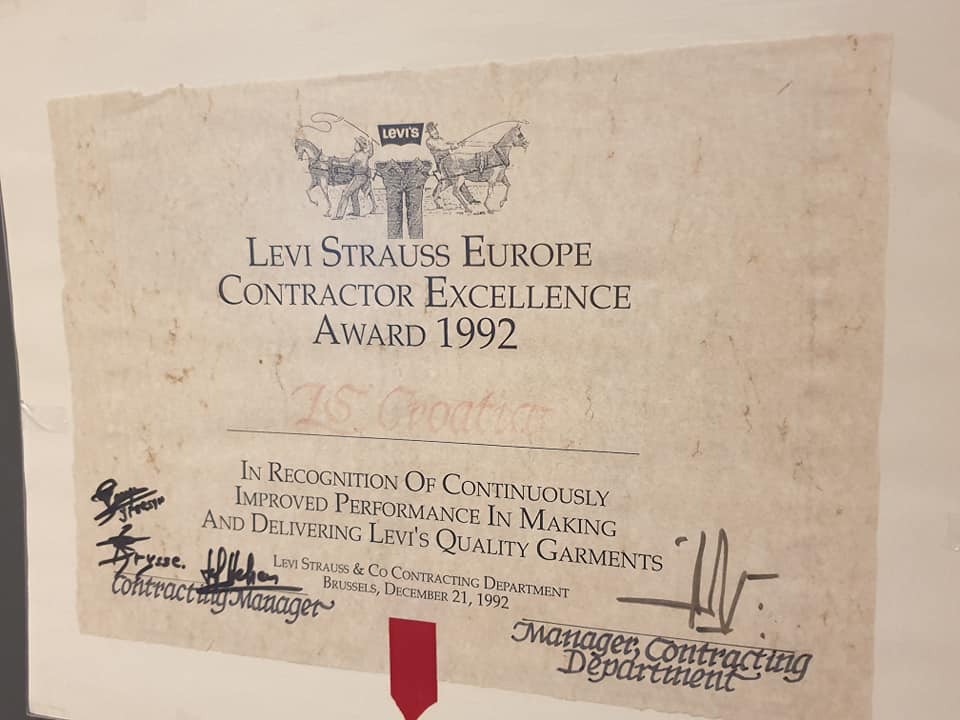
"Varteks was the largest and most important clothing and fashion company in ex Yugoslavia. But it has been in constant decline I would say for the last 50 years. People have noticed the decline in the last 12-15 years when year on year losses accumulated to more than 100 million euro, which ate most its substance (assets), but it has in fact been declining for many more years than that.
"It was founded in 1918 by Czechs from Moravia, and it quickly became the most important textile company in former Yugoslavia.
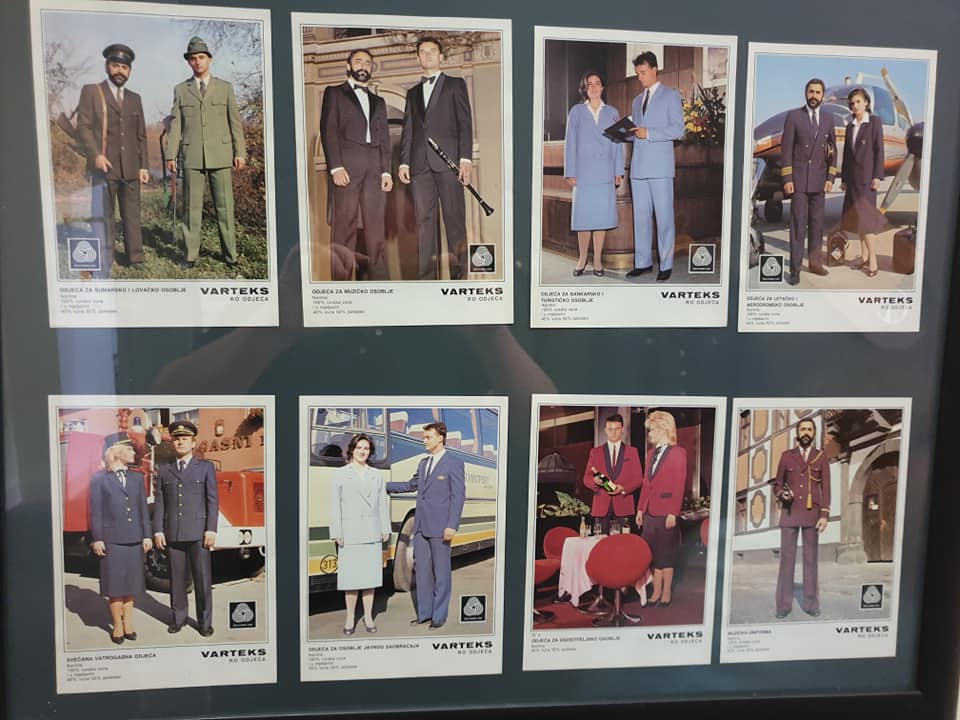
(Airline crew, hunters, hotel workers, and musicians - there was a Varteks uniform of quality for all)
"As textile markets declined and foreign markers were lost, the company concentrated on sewing for other labels. This is what we continue to do in our two factories, sewing for Hugo Boss and other global labels.
"Then we have a second business in producing very high-quality uniforms to NATO standards, for special forces, police uniforms, corporate clothing and so on.
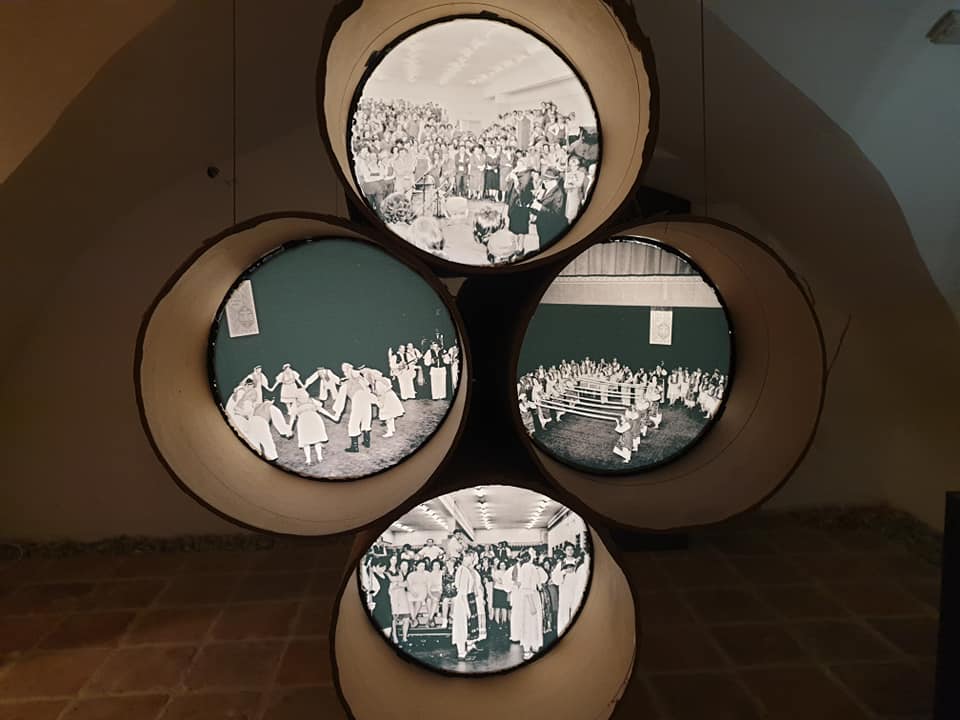
(From the 100 Years of Varteks exhibition - Varteks was much more than just a factory, it was a community, a way of life)
"And our third line of business, which is our main focus now is on our own brands and retail. Varteks used to have the largest retail network in ex-Yugoslavia, some 187 stores in all. These were mostly sold to cover the constant losses. And so Varteks is no longer a big player as before in the region, and companies such as Zara or H&M are ten times larger than Varteks today. But in people's minds, Varteks is still a huge company, I would say, and it is also the only relevant Croatian brand which survived.
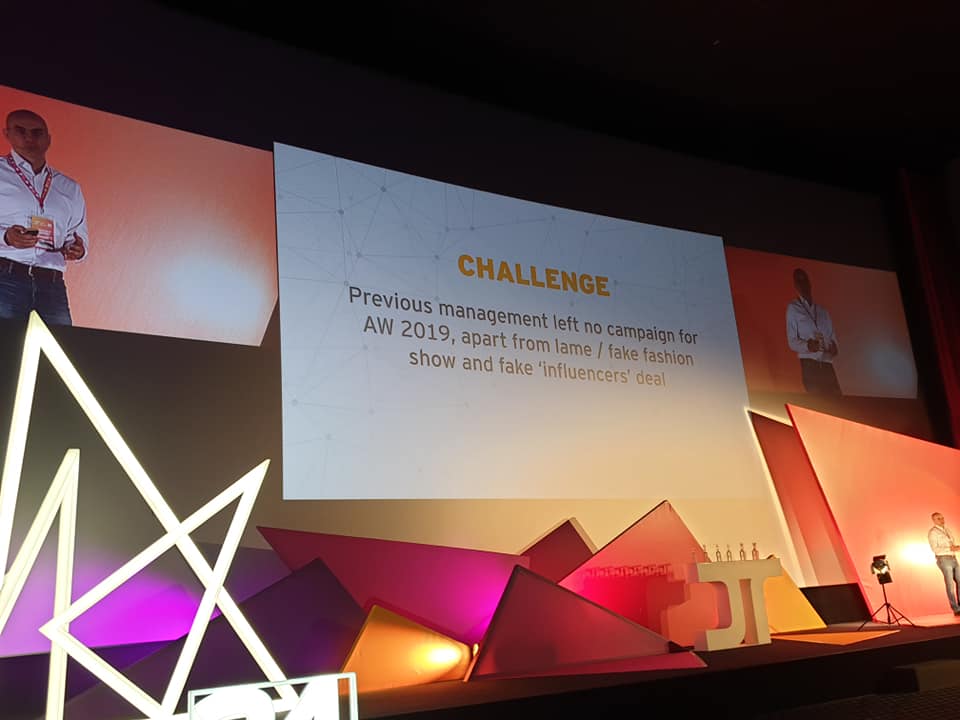
(Bakic gave an excellent presentation on the digital revolution at Varteks at last week's Digital Takeover conference, organised by 24 Sata, in Zagreb)
"Now we also have smaller designers in Croatia, who are also successful, but these are all small businesses. But out of the larger clothing and fashion houses, Varteks is the only one left.
"But a year ago, it was bankrupt, again, and this time there were no assets to cover the losses. So when I became more active as a supervisory board member and now CEO, we decided on a very clear direction towards quality and reestablishing the presence of our brand.
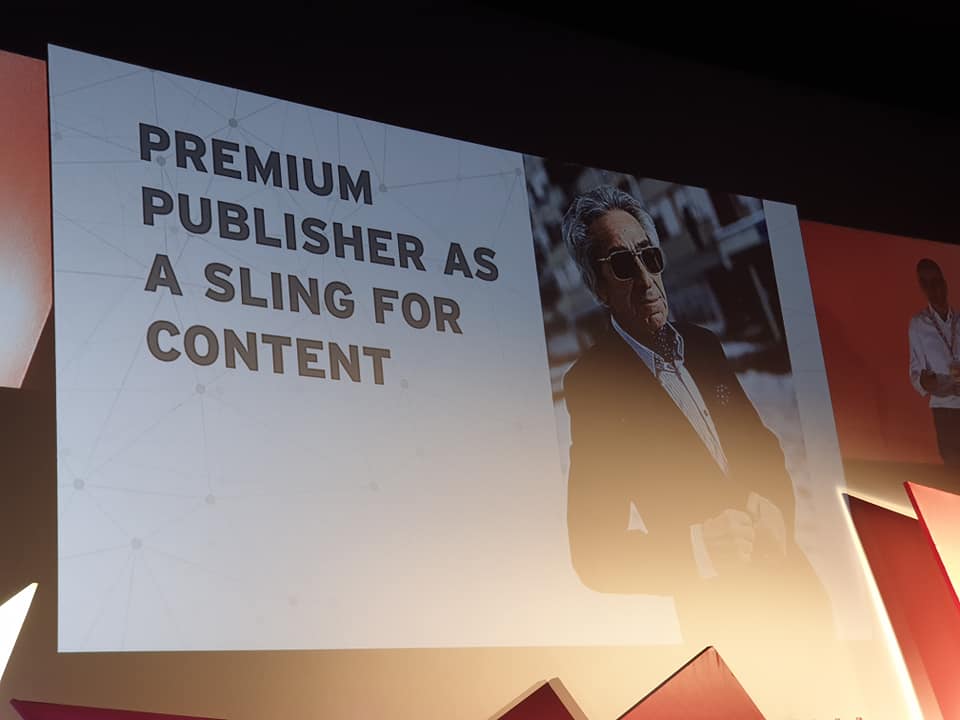
(Campaigns such as Vintage Varteks and Imperfect Man in a Perfect Suit have been unqualified successes)
"We are working hard to reestablish the quality of the brand. The quality of the brand has always been high, but perhaps sometimes not on the level of some of the brands imported to the Croatian market.
"With regard to the quality of the fashion and clothing, we are aiming for extremely high levels, so we are now putting in our stores the highest quality suits and clothing.
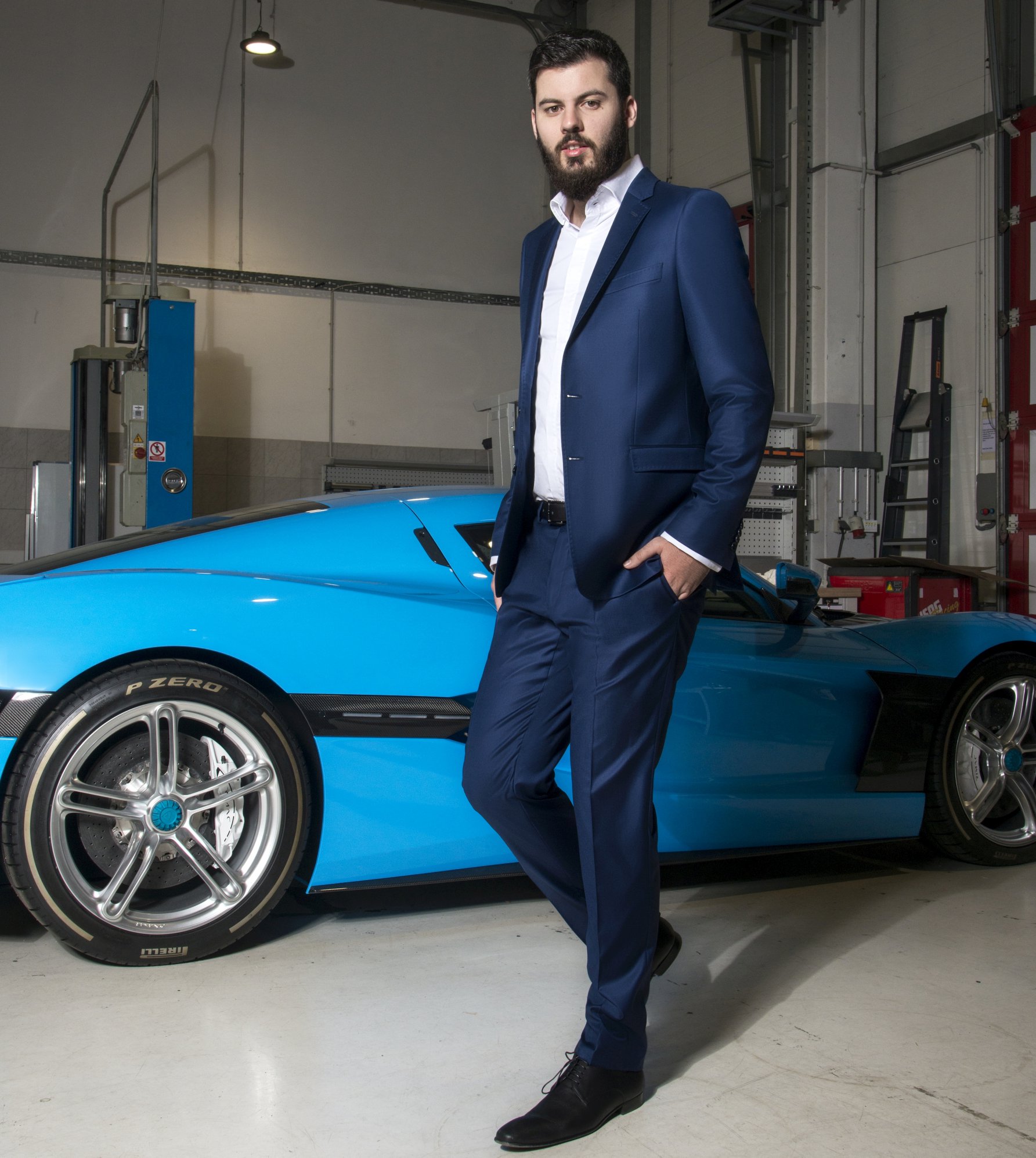
(Several prominent Croats have been proud to join the campaign to resurrect this Croatian industry with so much potential, including Mate Rimac, owner of Rimac Automobili, who is taking the automobile world by storm with his electric cars and technology)
"We produce for some of the largest brands in Europe. So the quality is there but two things were missing.
"Firstly, the design did not always follow the latest fashion, and we have fixed that. And the second was the marketing approach.
"I would say now that we are far and away the most innovative fashion company in Croatia when it comes to marketing. We have several marketing initiatives and we are developing a very broad portfolio now. So we have the highest quality suits in our limited edition, but we have also entered a new niche of suits for young people.
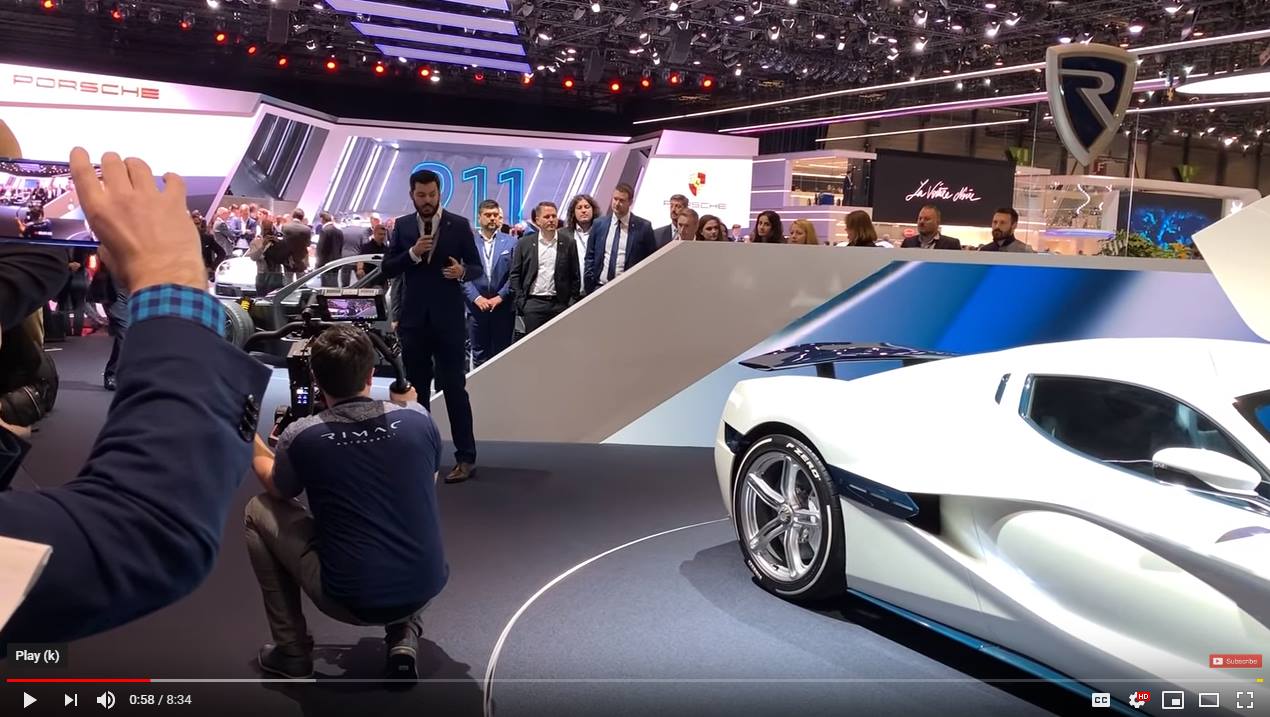
(What to wear when you are presenting the fastest electric supercar in the world at the Geneva International Motor Show? A Varteks suit of course!)
"This was one of our new ideas to team up with gamers, where we have a new collection of suits for the younger generation. We are mutually reinforcing our brand, and as you can see from their social media statuses, they are also very proud to be part of our initiative, and to be ambassadors for our suits."
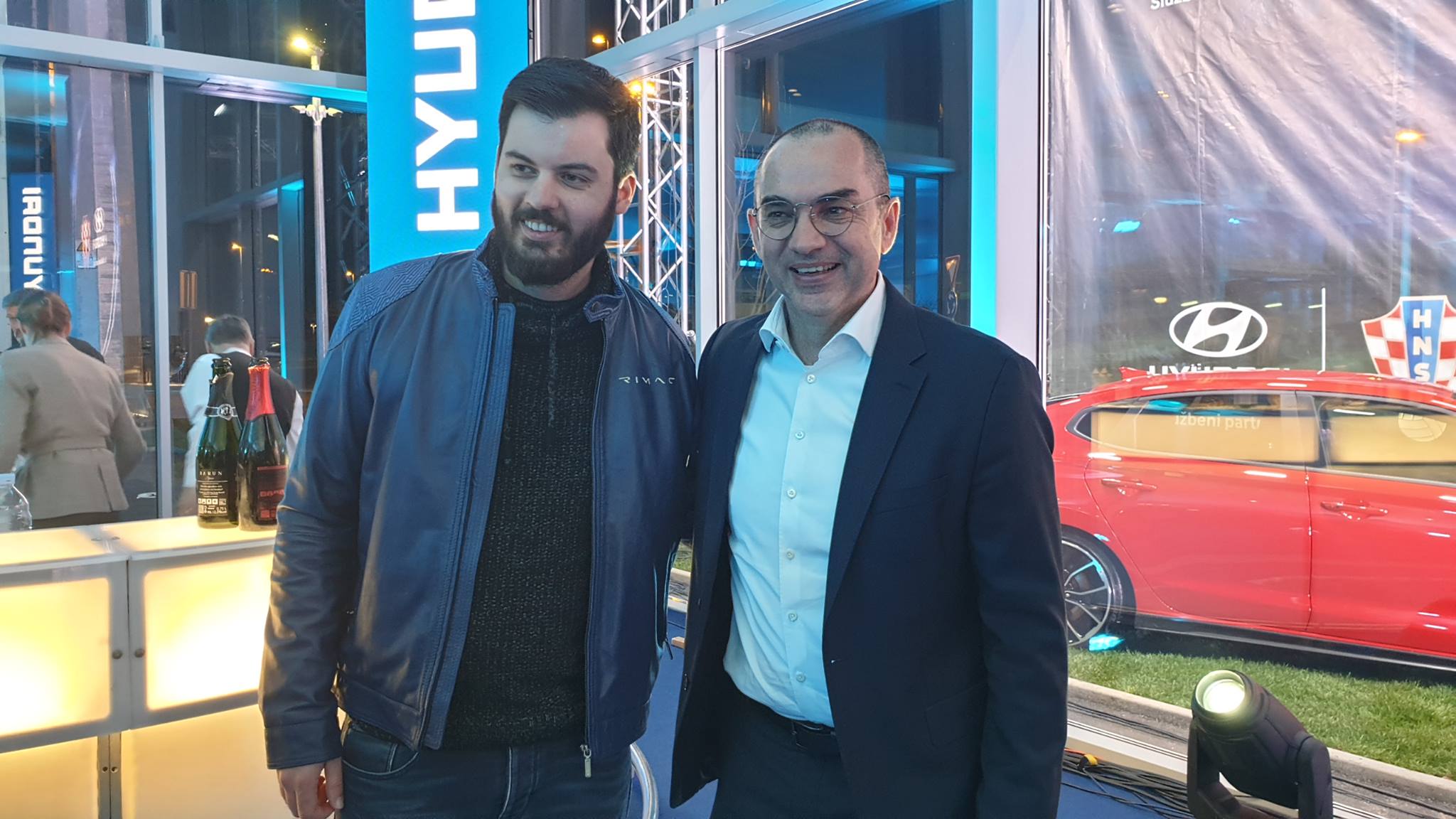
(Two men who bring hope for Croatia, both on The Financial Times list of top 100 digital champions of Europe in 2018 - Mate Rimac, left, and Nenad Bakic)
Tell me about the Varteks Modabus.
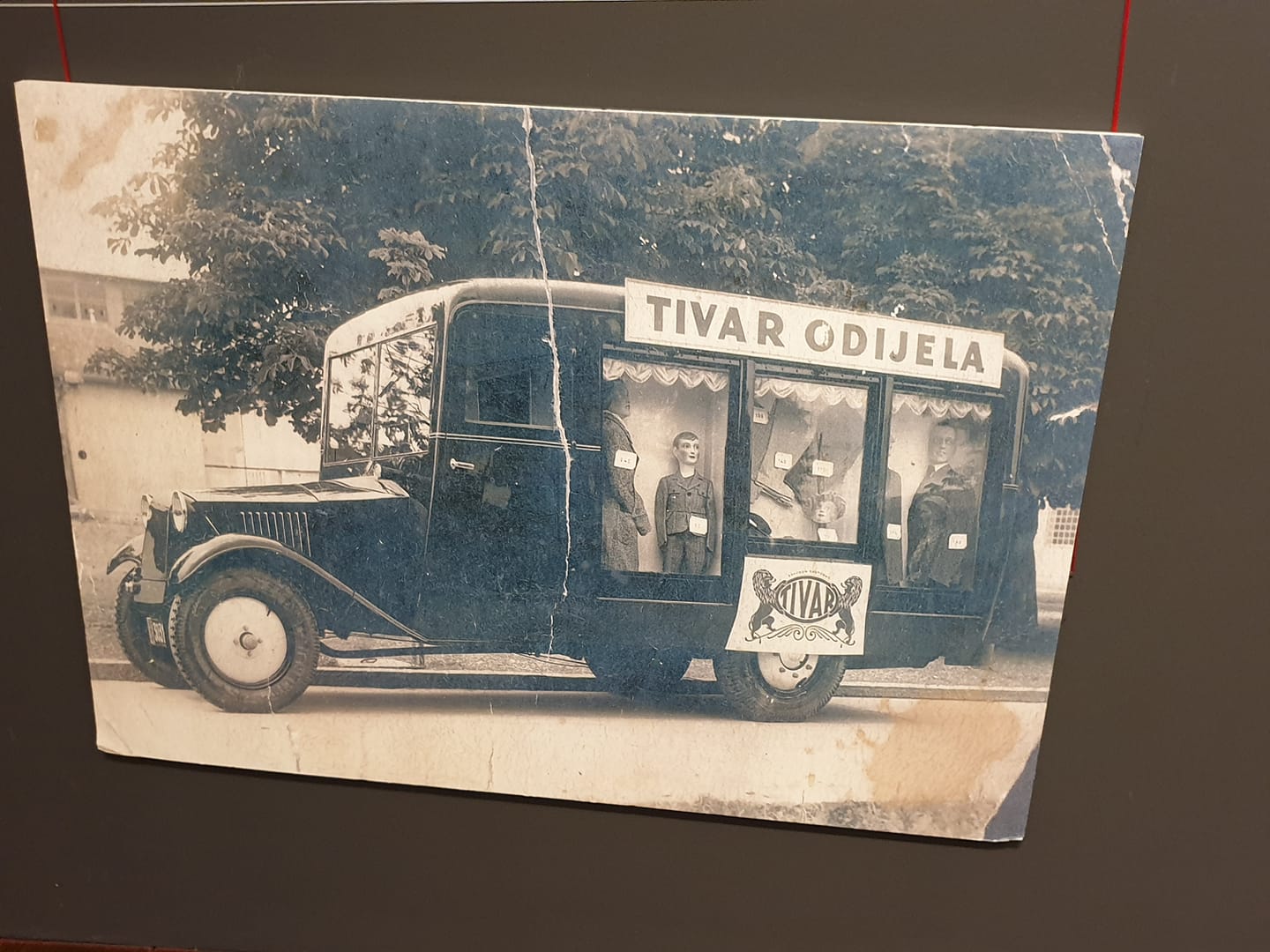
(Selling the Varteks way in 1937)
"Here we have something which I am really proud of, and it is something that can be presented at any retail conference worldwide. What we have done is taken something which is very old in retail – the moving shop. When they used to sell Coca Cola in the Wild West 100 years ago, or even Tivar (as Varteks used to be called), they did so with a moving shop, which was usually in the form of a moving truck.
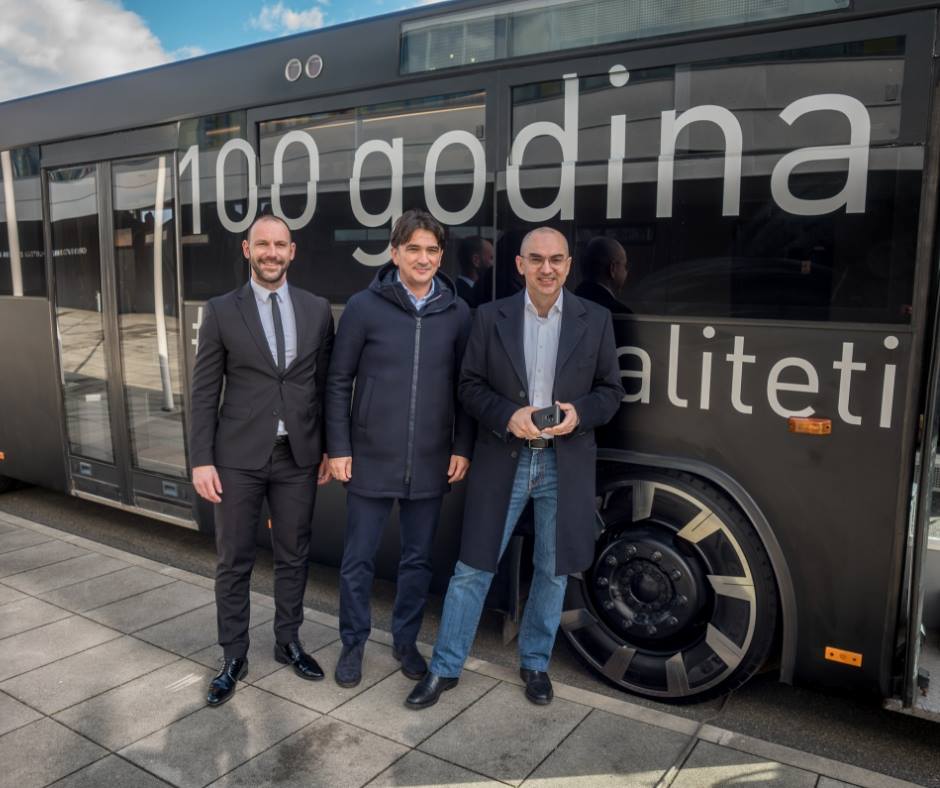
(Selling the Varteks way in 2019, with Varazdin man, World Cup coach Zlatko Dalic in the middle)
"We have taken that from history and reinterpreted the idea by taking the largest possible bus, which has 40m2 inside. So it can really function as a presentation like a modern shop, but it is also paired up with the online shop.
"So what is the customer journey? The customer feels very welcome and comfortable inside the shop. It has changing rooms so customers can try, but we don't sell anything in the bus. All the items have a QR code, and they can scan the QR code, which goes through to our webshop. From there it is just one click to SMS/WhatsApp/Email confirmation with a coupon which offers a 10% discount if they buy within 36 hours.
"So the customer journey involves using the oldest possible method of retail – the mobile shop – with the latest technology and webshop. I am very proud of this concept. Plus, as Varteks sold most of its shops all over the country, it sends a strong message to our customers that we are coming back to the places we used to be present, and also that we are agile, modern and responsive to new trends."
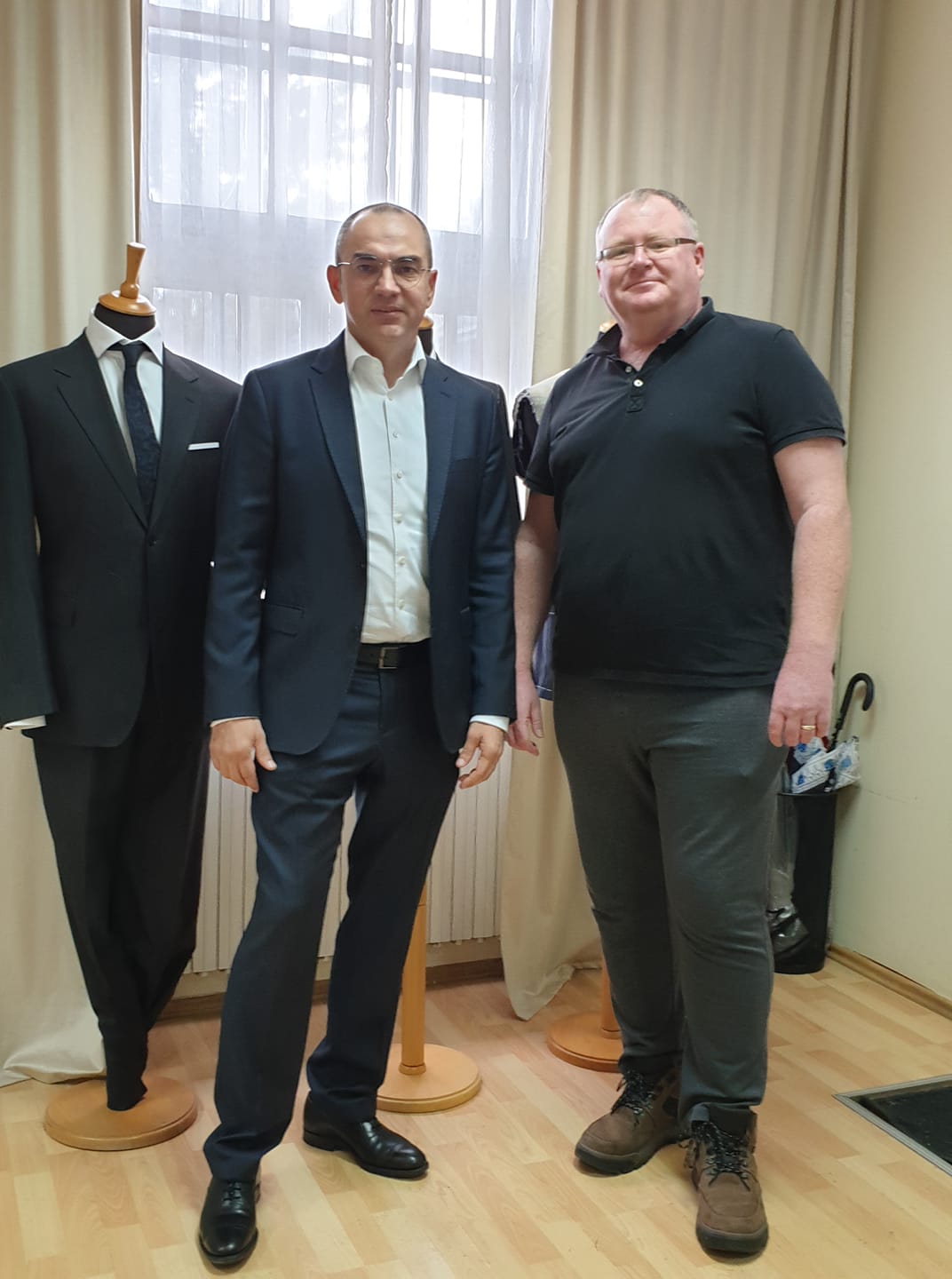
(TCN with Varteks CEO Nenad Bakic in Varazdin. I am not in a Varteks suit... yet.)
Are you planning on taking the bus outside of Croatia?
"Our next goal is to visit Bosnia and Hercegovina, as we have a market presence there. We are now trying to reestablish Varteks in Slovenia, and we have webshop deliveries to Slovenia now. Internationally, we will see. Currently, we have fantastic quality at great prices, but no brand presence in most other countries, so we will probe those markets through the webshop and see."
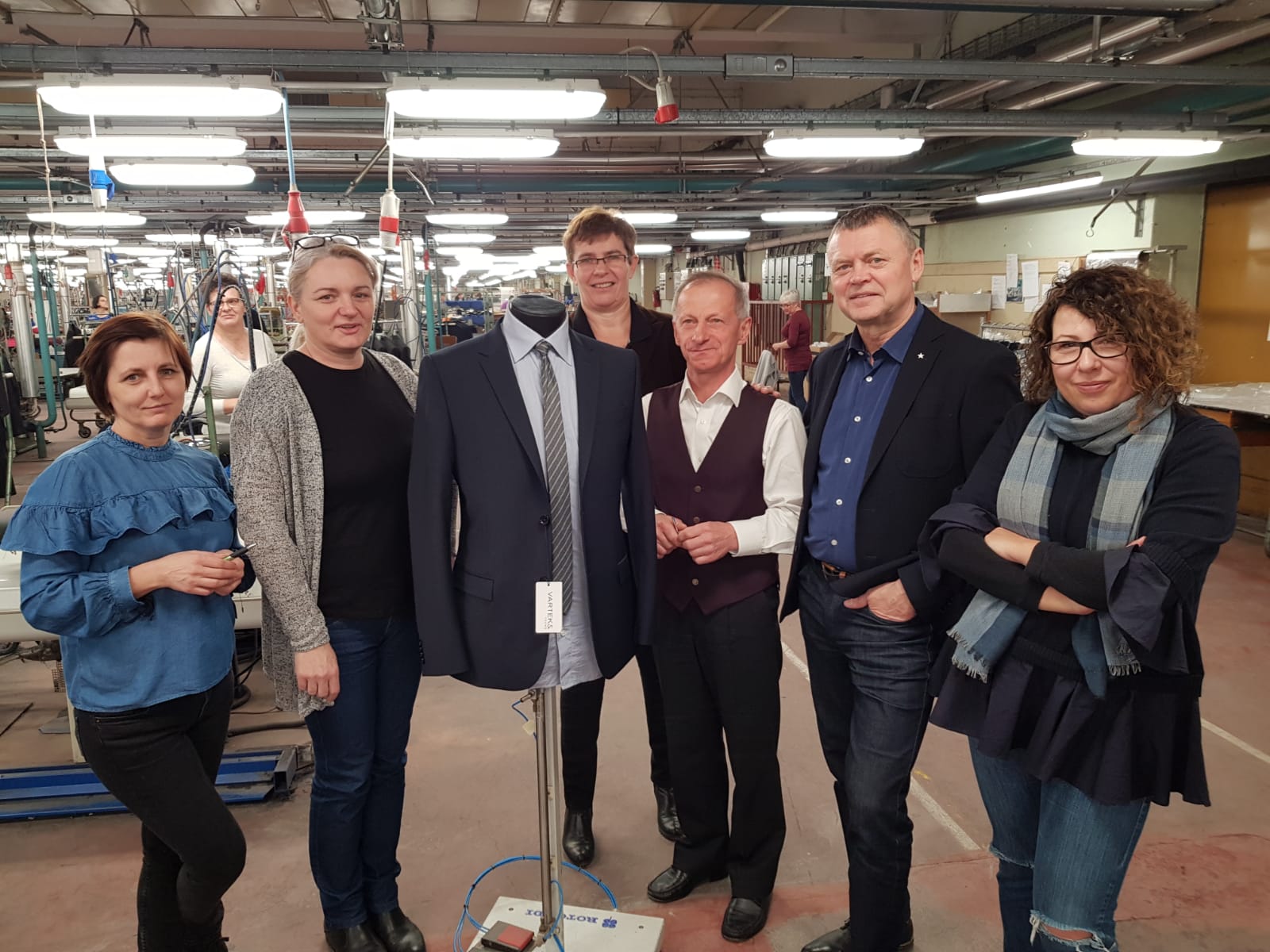
Check out the Varteks website and webshop.
To learn more about progress in the Varteks story and Nenad Bakic's other initiatives, follow the dedicated TCN page here.


